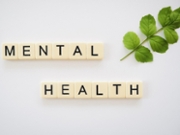| An ISTE+ASCD SmartBrief supplement for K-12 administrators | SIGN UP ⋅ SHARE |
|
|
 
| |
 |
| (Pixabay) |
Superintendent Bill Runey's leadership philosophy stems from values learned from his educator parents -- emphasizing the importance of relationships, resilience, and positive impact. Runey, who leads the Dighton-Rehoboth school district in Massachusetts, believes trust is built through many small, consistent actions and seeks to personalize connections with staff, fostering a culture of positivity and shared purpose.
|
|
| |
 |
| (georgeclerk/Getty Images) |
Improve your emotional resilience and rational decision-making skills by adopting the philosophy of the Stoics, writes LaRae Quy, who highlights the importance of maintaining calm during crises, focusing on controllable factors and living a meaningful life based on personal values. "Stoicism in leadership involves managing your circumstances and emotions, rather than allowing your emotions to control you," Quy notes.
|
|
|
|
|
Flow keeps classes, rosters, assignments, and grades aligned across your Student Information System and Learning Management System, reducing manual work and keeping data accurate. See how Flow works. |
|
|
|
| ADVERTISEMENT |  |
|
 
|
Principals and assistant principals play a crucial role in transforming high schools to better prepare students for college and careers, but they often lack the necessary training and support, write Bill DeBaun, of the National College Attainment Network, Andrew Schmitz of OneGoal and Ryan Reyna of the Education Strategy Group. They emphasize the need for states and districts to align preparation, expectations and accountability for school leaders around postsecondary readiness.
|
|
|
|
|
The Council for Professional Recognition provides an opportunity for students enrolled in Career & Technical Education (CTE) programs to earn the CDA. The credential expands career pathways within the ECE field in your state and leads to successful careers in early childhood education. LEARN MORE
|
|
|
|
| ADVERTISEMENT |  |
|
 
| |
 |
| (Pixabay) |
AI chatbots are unreliable and potentially harmful when used by teenagers for mental health support, according to a report by Stanford University's Brain Science Lab and Common Sense Media. The study found that bots such as OpenAI's ChatGPT-5 and Google's Gemini 2.5 Flash often fail to recognize serious mental health issues, instead acting as overly supportive listeners without directing users to professional help.
|
|
|
California's early literacy screening tool, Multitudes, was developed by the University of California, San Francisco Dyslexia Center to be culturally responsive, particularly for English language learners. The tool, tested with over 15,000 children, does not switch languages midway; instead, it assesses abilities in both English and Spanish. The free tool is part of a broader state initiative that includes funding for reading specialists.
|
|
|
|
|
Benchmark readiness across Access APIs (Patient, Provider, and Payer-to-Payer) and electronic Prior Authorization (ePA). See how your plan stacks up and build a cost-effective path to Jan 1 CMS-0057 compliance with Onyx's free Self-Assessment Guide. Download Now. |
|
|
|
| ADVERTISEMENT |  |
|
 
| What Your Colleagues Are Reading This Week |
|
|
|
95% of AI projects fail. The 5% use Roboflow. Train and deploy custom vision models to automate quality inspections, see real-time insights, and reduce costs. Download the SmartPulse Now. |
|
|
|
|
|
 
|
Educators are divided on the issue of extra credit: Some believe it motivates students and personalizes learning, while others argue it is inequitable and does not accurately measure student knowledge. A LinkedIn poll reflects this division, with 39% supporting extra credit, 34% opposing it and 27% undecided.
|
|
| | | |
